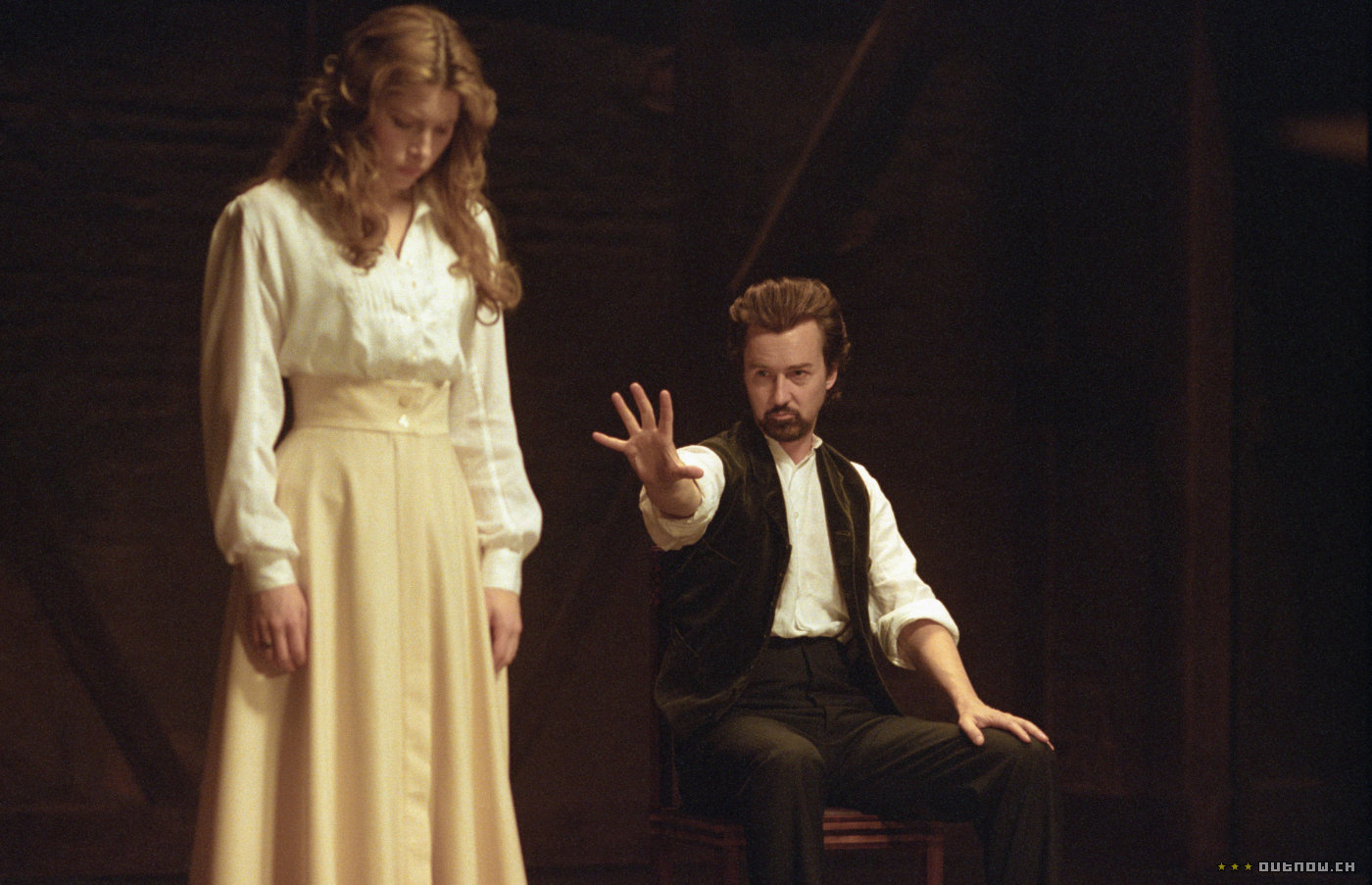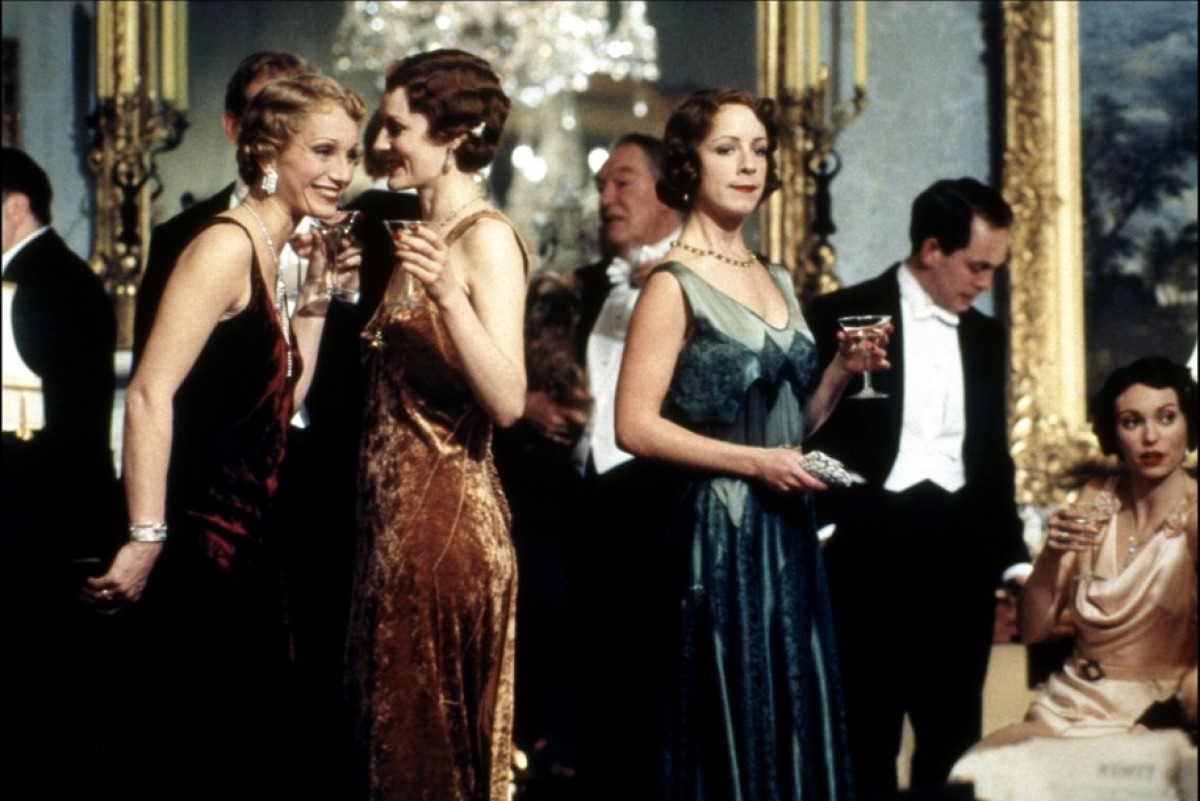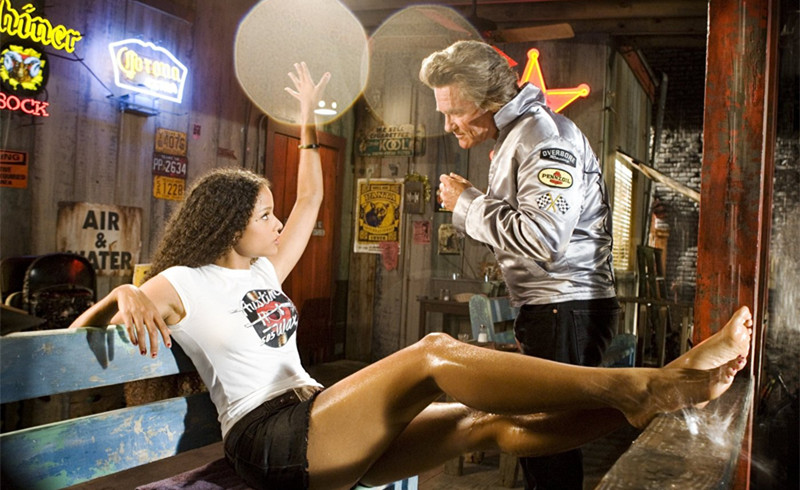6. Full Metal Jacket (Stanley Kubrick, 1987)

Stanley Kubrick was an auteur in the true sense of the word, if ever there was one. Every one of the movies he made leaves a lingering impression on a person for one quality or the other, usually for long after it’s over. Full Metal Jacket is far from a traditional movie, even by Kubrick’s standards. Almost every one of its individual scenes has the distinct artistic touch of a person who knows exactly what he wants from his film and how to achieve it. But a movie should ideally be something more than just a bunch of scenes put together which, like in the case of Full Metal Jacket, do not make collective sense retrospectively.
The movie begins on a marine training camp where an extremely stringent and tough sergeant, Sgt. Hartman, rambunctiously trains a company of new recruits, draining them of their humanity and moulding them into battle-ready weapons. One of the recruits, dubbed ‘Gomer Pyle’ by Sgt Hartman, struggles constantly to keep up with the others in their transformation from persons to privates, suffering further due to the sergeant’s extreme harshness.
In this portrayal of the military’s training, Private ‘Pyle’s predicament and the culmination of his conflict with Sgt Hartman in the utterly shocking and masterful climax, Kubrick delivers an exceptional and raw cinematic experience replete with dark humour often hysterically funny.
However, once the film reaches the war in Vietnam, it becomes so segmented that one can longer be sure what to make of it. With no thread to tie them in a relative chronology, the characters become distant and unfeeling so that we lose any interest in what is happening on the scene and are left waiting for the next scene with some meaningful activity. One can never quite figure out the meaning of the movie or what Stanley Kubrick wants to say, which defeats the entire purpose of cinema, especially his brand of it.
7. The Illusionist (Neil Burger, 2006)

Based on a short story by Steven Millhauser called Eisenheim The Illusionist, this film follows the story of a mysterious stage magician called Eisenheim, played by Edward Norton, who grips Vienna with his astonishing and seemingly unexplainable acts in the late nineteenth century.
The plot thickens profoundly when Eisenheim is reunited with his childhood love, the Duchess Sophie, during one of his acts. Class issues had prevented the two from ever coming together and now Sophie has become the fiancée of the nasty and immoral Crown Prince Leopold. The film already checks many boxes with its stellar cast, elaborate period depiction and a gripping, dramatic story replete with awe-inspiring magic.
The set-up of the film is great and creates drama, mystery and interest. With magic taking centre-stage, there is hardly a dull moment in the beginning of the film. The plot build-up is effective, revealing just enough to be smart and hiding just enough to maintain suspense, and the film feels inventive & ambitious. But as the film plays out its charms to their end, all its shortcomings that they caused the viewer to overlook are brought to the fore.
The dialogue becomes corny, the drama heavy-handed and the film borders on predictability – the last thing you would expect from a movie about magic, which is fixing for a ‘sudden’ twist. It all seems seen-before and unstirring as the movie starts explaining itself, which does no good – after all, there is a reason why magicians don’t disclose their tricks. All mystery is lost in its quest to satisfy the audience’s emotional and romantic thirst and along with it is lost all intrigue and the definite potential to be a great movie.
8. The Terminal (Steven Spielberg, 2004)

Steven Spielberg is undoubtedly one of the best directors working today and Tom Hanks is as good an actor as any other. With this duo having made the brilliant Saving Private Ryan, there is no reason for movie-goers to not have high expectations going into The Terminal – a film about the terribly innocent and sweet Viktor Navorski, a man from the troubled fictitious country of Krakozhia who is not allowed to leave the airport terminal at JFK for an indefinite amount of time due to a military coup in his home country.
So, he makes the terminal his own and gets by, making the best of everything others take for granted at the airport without ever complaining enough. This clever and interesting premise is one never seen in the cinema, which is what makes the film so great initially. Navorski is unperturbed in his unusual situation, and couldn’t care less for the massive crowd that is always there, walking around in a bathrobe at one point.
This quirky take on a place where people are generally the most impatient is most engaging. But then, The Terminal turns into a silly manipulative gimmick to stir up pre-decided emotions in the audience, and in as many scenes as possible. The quirky acts of Navorski suddenly turn into heroism. The movie throws one implausible and fantastical act at us after another – from the head of airport security oppressing Viktor the ‘hero’ to force him to leave, to Navorski actually building a fountain to impress a flight attendant who is dating a married man.
The Terminal unnecessarily forays into so many immature subplots and meaningless scenes that it turns irritating. The bland romantic angle of the film feels forceful and tasteless beyond comprehension. By the time the movie ends, it doesn’t leave us with any second thoughts about its senselessness when the contents of Navorski’s precious can are revealed.
9. Gosford Park (Robert Altman, 2001)

Gosford Park’s premise itself is particularly interesting and convincing enough to make a person look forward to watching it. Several upper-class guests arrive at an English country house for a hunting party, with a massive group of servants working downstairs to enable their comfortable stay, until one of the guests is murdered and everyone else becomes a suspect.
The enormous cast of accomplished actors, the engaging period depiction and the peculiarly interesting British aristocratic culture demand attention and drive the movie initially. Further, director Robert Altman’s heavy borrowing from the great Jean Renoir’s La Regle du Jeu is engaging for a cinephile. However, one can only take so much of pointless sophisticated drama in the wait for the story to finally kick in.
But the wait proves endless as Gosford Park doesn’t have so much to do with a story as it has with the depiction of how a bunch of interesting characters conduct themselves in a sticky situation. While that isn’t a bad idea at all, in Gosford Park, the sheer number of characters, each with their own little back story, is so overwhelming that it becomes sketchy and unenjoyable.
The movie demands the viewer’s investment in remembering so many little details, all futile, that they lose interest sooner or later. Anybody looking for a good murder mystery per se would be highly disappointed with Gosford Park for the murder story is presented almost matter-of-factly. The only saving grace in the latter half of the film is the wry humour in the murder investigation by the droll investigating officer, played by Stephen Fry, and his subordinate officer. There is hardly anyone who will be able to retell what they saw in Gosford Park even if they just watched it.
10. Death Proof (Quentin Tarantino, 2007)

Quentin Tarantino went far beyond the ability to make bad movies right from his debut in 1992. He has been behind some of the most rewarding and magnificent cinematic experiences since he became active and has his since created his own brand of cinema. Expectations from a Tarantino film are always high and rarely does it happen that it fails to live up to them. So, Death Proof mostly disappoints due to its failure to live up to such huge expectations.
Following a scarred stuntman called Stuntman Mike, who uses his monstrous car to murder beautiful young ladies by making their deaths look like accidents. With a premise like that of a bad B-movie, Tarantino sets his film up meticulously and gradually, as we see three voluptuous girls hanging out in a bar and making plans for a trip. Stuntman Mike is never far behind the girls, which one of them happens to notice.
The whole plot plays out in typical Tarantino fashion until the girls are mutilated badly when Mike rams his ‘death proof’ car into theirs. However, the lack of Tarantino’s signature badass, nuanced dialogue is evident even in the first half itself. In the second half, Stuntman Mike chooses his next victims, four equally beautiful women but who can fight him back this time. Unfortunately, as the film progresses into this setting, it drives more and more into tediousness, with pointless and unclever scenes made gimmicky by the cheesy dialogue.
A lot of time is invested to familiarize the girls, but the film fails in evoking any special interest or care for these characters with its self-indulgence. Tarantino takes a wonderful premise, builds it up and then takes it in a direction in which there is no movie. It is reminiscent of Russ Meyer’s 1965 sexploitation film Faster, Pussycat! Kill! Kill! but is hardly as entertaining.
Author Bio: Pradyot Raina is a college student in India looking for the cinema in life and life in the cinema. He is a freelance writer with a perennial appetite for aesthetic.